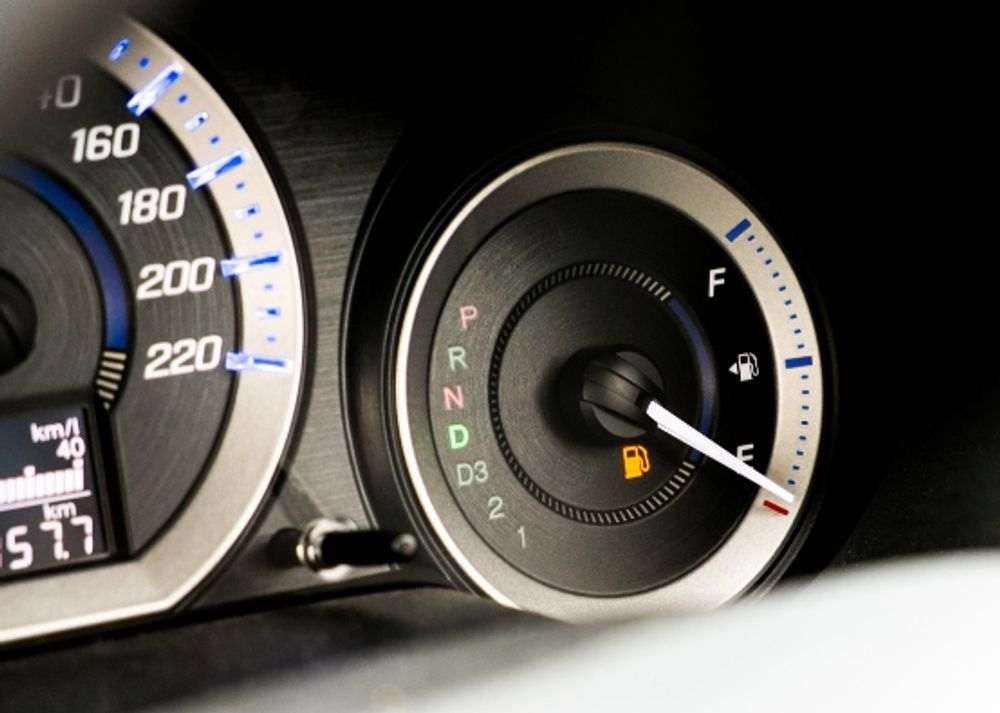The holidays are here and it’s time for road trips. Ideally you’ve planned ahead, but sometimes even the best plans don’t work out. Like making sure you have enough gas in the tank. What should you do if your fuel light goes on and there’s no service station in sight? Being prepared can help you avoid getting in the situation to begin with. However, knowing what to do if your car runs out of gas can help make a stressful situation safer and less intimidating.
What To Do If You Run Out of Gas
Get to Safety
Rule number one is to get out of your vehicle and stay a safe distance from it. A resting vehicle on the shoulder is a sitting target that drivers might not see, especially after the sun goes down. If your car has run out of gas in the middle of the road, immediately turn your hazard lights on for visibility – at night and even in the day time. This alerts other drivers to the fact that you’re immobilized.
Then carefully move your car to safety. Put your car in neutral and check to ensure it’s safe to exit your vehicle. When it’s clear, carefully step out alongside the driver’s seat and push your car to the side of the road. Keep the steering wheel in your grip to guide the direction of your car. Once you’re safely out of harm’s way, set your emergency brake and leave your hazard lights on; that’s what they’re there for!
Determine Your Whereabouts
If you’re in the middle of nowhere and aren’t sure exactly how far you are from the nearest gas station, you’re going to have to determine where you are. Navigation apps like Waze make this easy. If you’re out of communications, look immediately for road signs or, if it’s dark out, for nearby lights that could indicate an off-ramp leading to a nearby gas station.
Call for Help
Here’s an out-of-gas phone list:
- Call friends or family who might be available to deliver you a gallon or two.
- Call your insurance company’s roadside assistance. Check your insurance card, which should contain a 24/7 800-number for emergency assistance.
- Operator / 411 should be able to advise you of nearby gas stations. You’ll have to pay out of pocket, but that’s far more preferable to staying stranded.
- 911 – call the cops as a last resort in case your phone doesn’t have other service. Thanks to FCC rules, even a phone with no signal can reach 911.
Get Going
If you have the ability to call a towing service, get to a safe space and do so immediately. If you’re unable to get someone to come to your assistance, your next option may be to walk. Regardless of the weather, do not stay in your car. Staying outside of the car removes you from the possibility of a collision with traffic. As a last option, consider enlisting the help of a Good Samaritan. Look for someone to send help from the nearest gas station. As always, exercise extreme caution if accepting help from a stranger. Go with your gut; if someone looks remotely unstable, explain that help is already on its way.
Prevent It Next Time
Plan Ahead
To avoid running out of gas on a long road trip, download an app on your phone to locate gas stations along your route. Pinpoint ahead of time when and where you’re going to stop. That will keep you from passing the last gas station for several miles and ensure that you get to your destination quickly and safely.
Put Your Tank to the Test
Ever wonder how empty is “empty”? ABC’s John Stossel put that question to the test. He packed a spare can of gas and set off to determine how far beyond the “E” his car would go. The results were interesting, leading to the conclusion that many cars can go quite a long way on “E” before actually breaking down. To find out how far your car can go after the gas light comes on, check out this handy-dandy website that provides some good information.
Don’t Trust Your Range
If you’re cutting it close, don’t trust your fuel gauge. Even if it indicates your tank has 20-30 miles left to go, those numbers don’t always drop sequentially. There are a few things you can do to conserve fuel when it matters most: Cars are the most fuel-efficient at 35 to 45 mph. Consider state traffic laws and safety if you’re on a fast-moving interstate highway, but if possible maintain an efficient speed. Turn off the air conditioning, stereo, and all other electrical devices, such as charging phones. Finally, keep your windows rolled up to reduce wind resistance on your vehicle.
If you’ve ever been stranded due to a broken-down car, you won’t want a repeat experience. Need a high quality local mechanic? Openbay can help you find a trustworthy automotive shop near you.
Save upwards of 25% on
car repair and maintenance services with Openbay+

